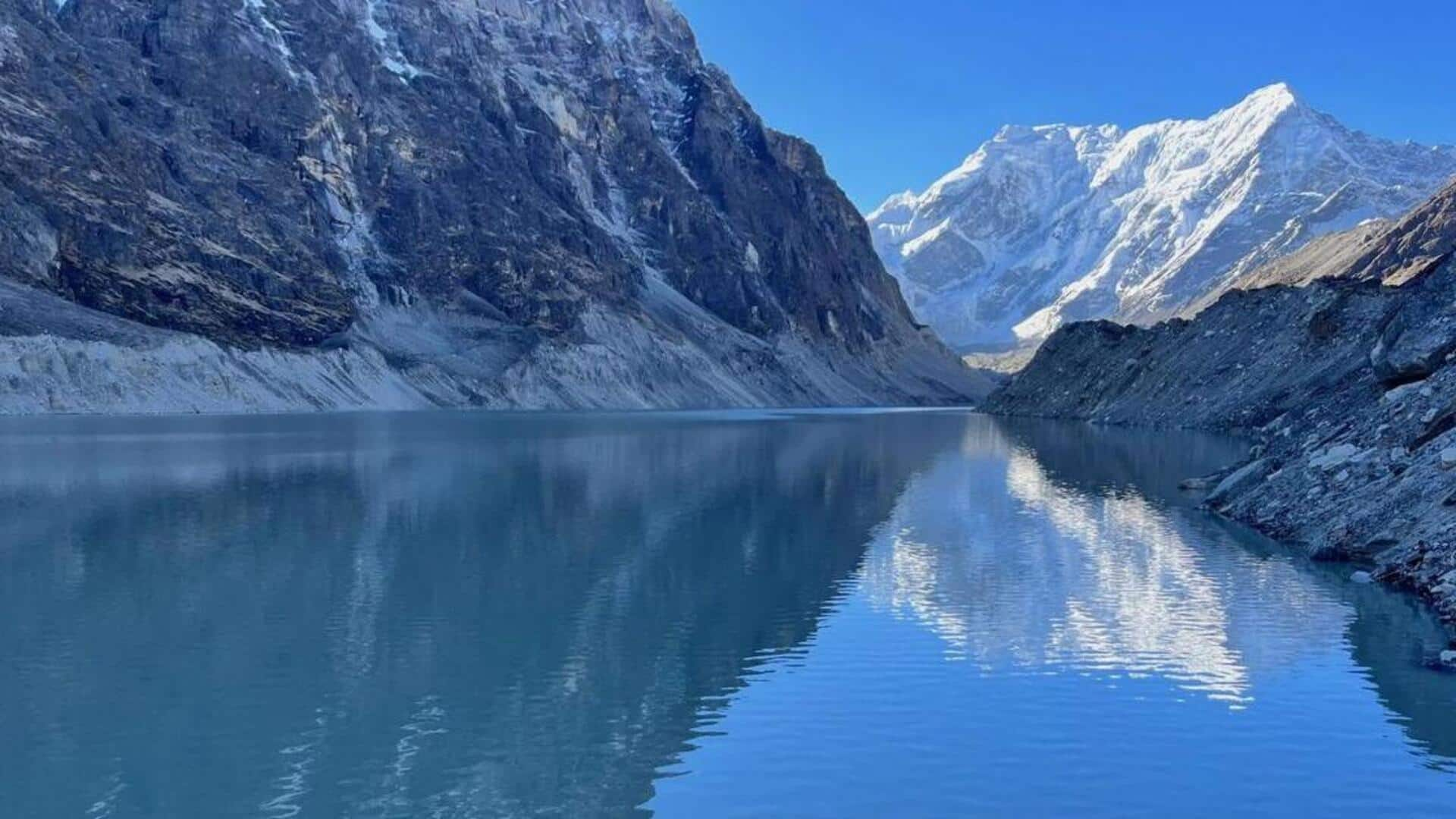
Worrying: Over 40 glacial lakes in Nepal might burst soon
What's the story
Nepal is facing a major threat from its glacial lakes, with experts identifying 42 of them as being at high risk of bursting. The warning was issued by Sharad Prasad Joshi, an expert from the International Centre for Integrated Mountain Development (ICIMOD), during a discussion in Khandbari, Sankhuwasabha district. The potential outburst could lead to massive loss of life and severe damage to infrastructure.
High-risk region
Koshi province most vulnerable
According to Joshi, all 42 high-risk lakes are located in the Koshi province of Nepal. Four of these lakes are in Sankhuwasabha district, including those in Bhotkhola and Makalu areas. The Tallopokhari glacial lake in lower Barun area is the most vulnerable, measuring about three kilometers long and around 206 meters deep with surrounding depths between 15-25 meters.
Mitigation efforts
ICIMOD, government collaborate on risk-reduction measures
Joshi said the ICIMOD is working with the Department of Hydrology and Meteorology and UNDP Nepal to develop risk-reduction measures for these high-risk lakes. A large pond in lower Barun area has also been included in this initiative. The expert warned that a lake burst could threaten settlements and infrastructure in Arun Valley, while 13 glacial lakes from Tibet could also pose risks to northern areas of Koshi province.
Awareness initiatives
Vulnerable groups targeted for disaster preparedness programs
Another ICIMOD expert, Neera Shrestha Pradhan, highlighted the impact of disasters on vulnerable groups like women, children and the elderly. She said the organization is running programs to raise awareness and strengthen these groups' capacity to deal with potential disasters. The findings were detailed in an ICIMOD report titled "Risks Arising From Rapid Changes in Nepal's Glaciers and Glacial Lakes."